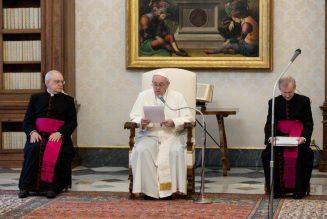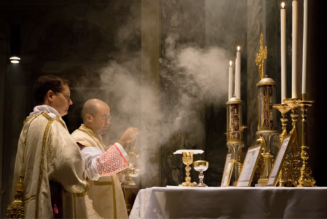
On May 7, 2001, Pope John Paul II published Liturgiam authenticam, a document on the use of vernacular languages in the publication of the books of the Roman Liturgy. This document set in motion a translation effort aimed at preserving the closest wording of the Latin liturgy. People in the pews may be most familiar with the way this effort affected the translation of the Mass.
Book by book, the bishops conferences of each language have translated updated versions of the various rites in the Church, renaming the Rite of Penance to the Order of Penance, for instance, after the Latin “Ordo paenitentiae.”
This is the latest book to undergo the translation effort. Because RCIA was also the name popularly associated with the process of going through the restored catechumenate, the process also has been renamed, a potentially confusing switch that may leave people wondering if anything else changed within the process.
In a slight revision, the traditional categorization of those petitioning for full acceptance into the Church has been changed. The new revision includes four groups: catechumens (who are unbaptized adults); unbaptized infants; baptized non-Catholic Christians, and baptized Catholics in need of confirmation.
Additionally, individuals in RCIA were usually referred to as a “candidate.” OCIA will be split depending on where the candidate is in the initiation process. Terms used will be “inquirer,” “catechumen” and “elect.”
In order to become a Catholic, individuals go through several rites with the final being at the Easter Vigil when they are welcomed into the Catholic Church. The Easter Vigil rites have also been adjusted. They will now focus more on the validity of baptisms received in other Christian denominations.
Join Our Telegram Group : Salvation & Prosperity






